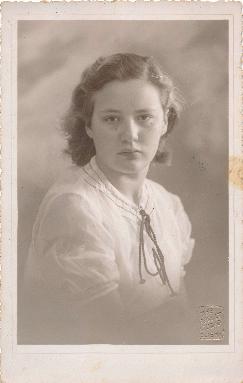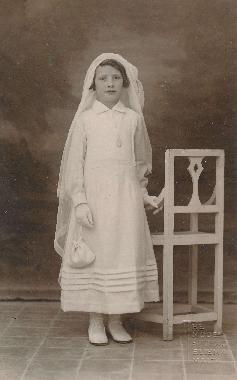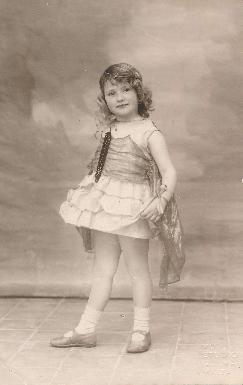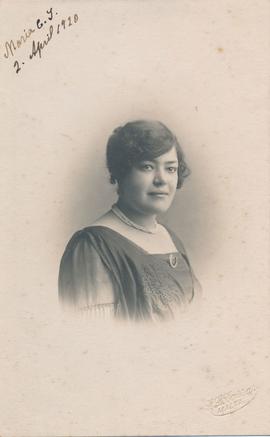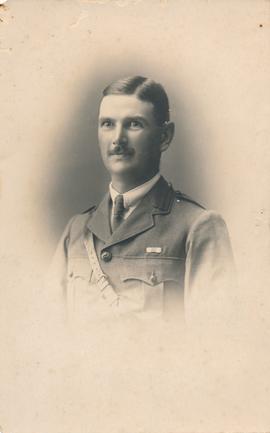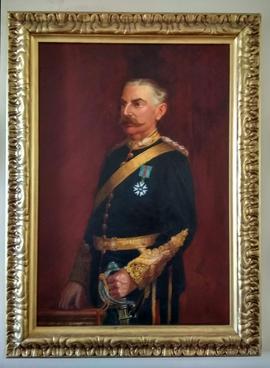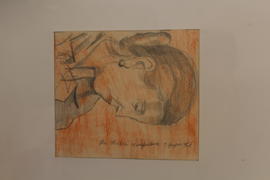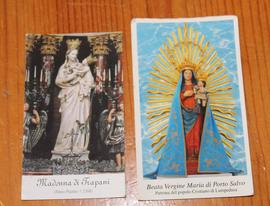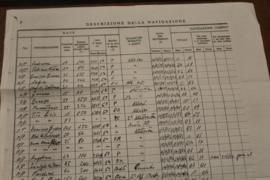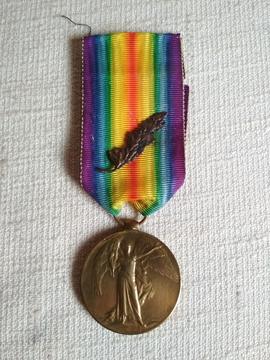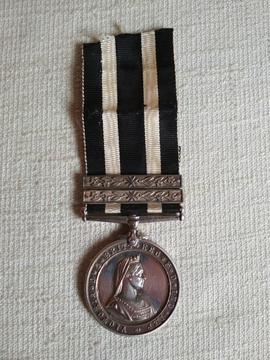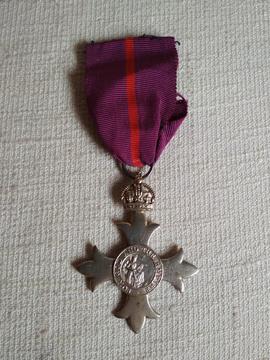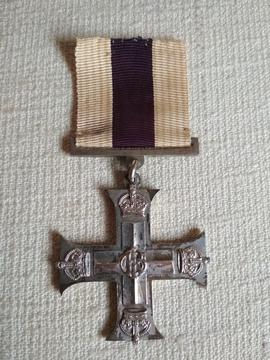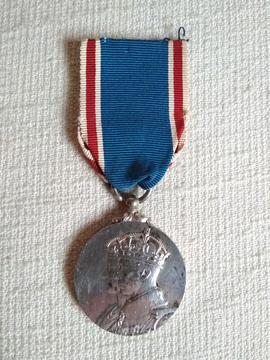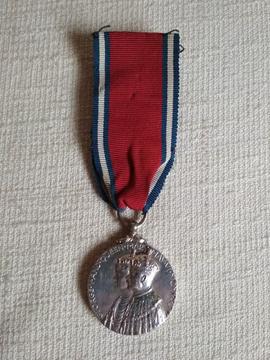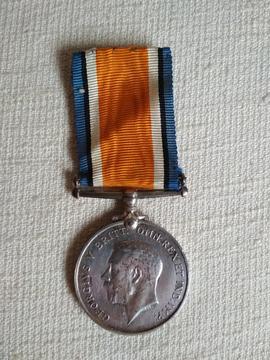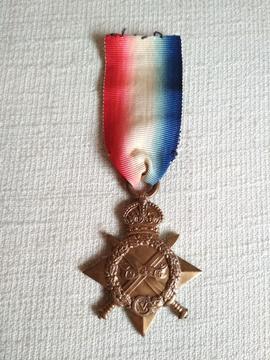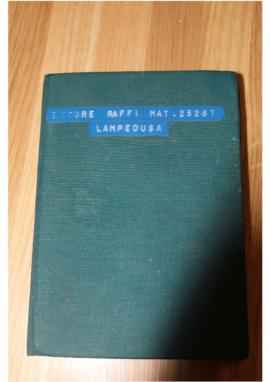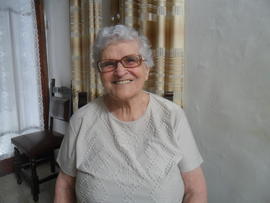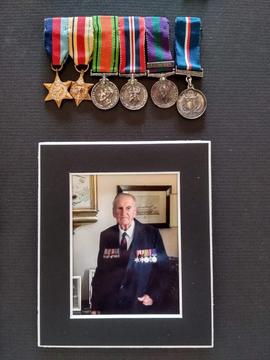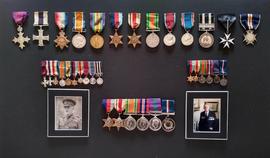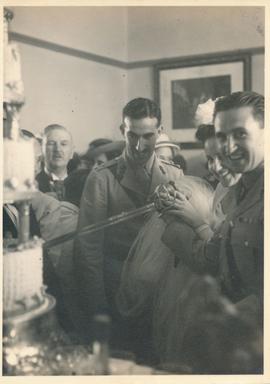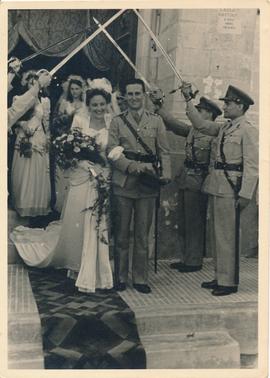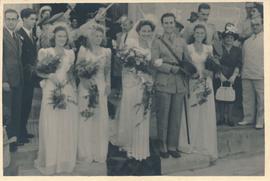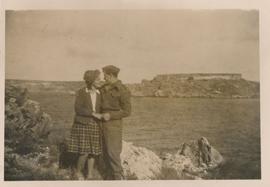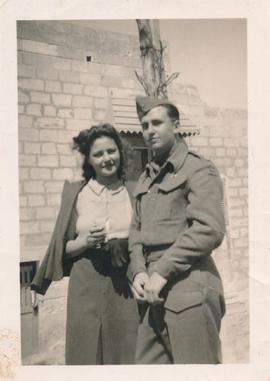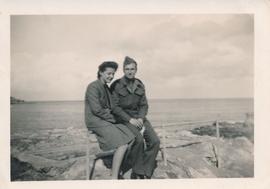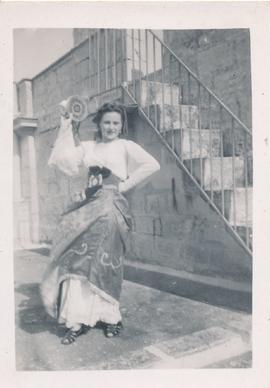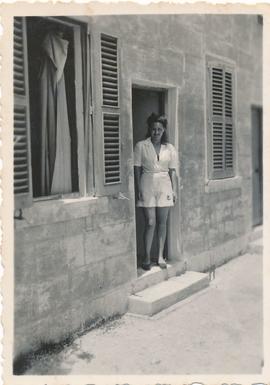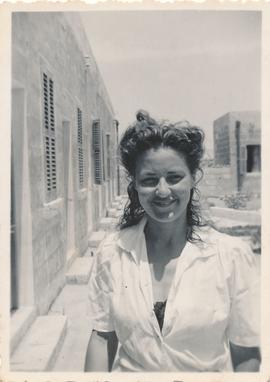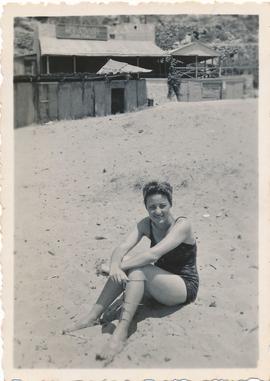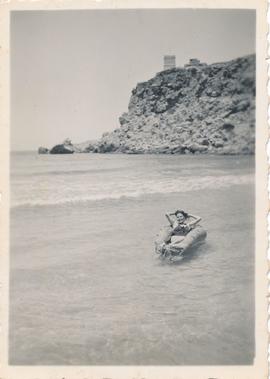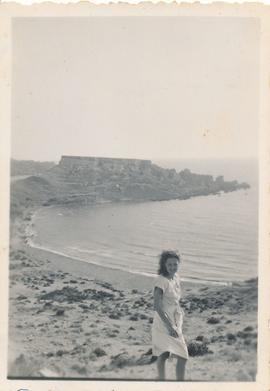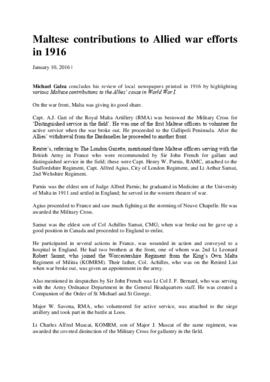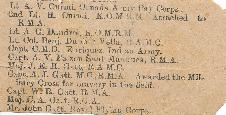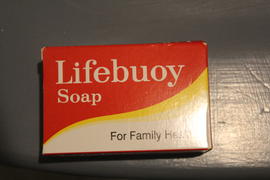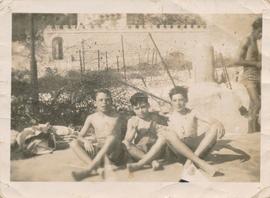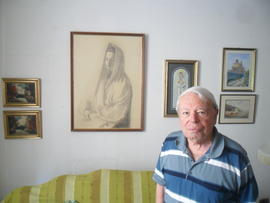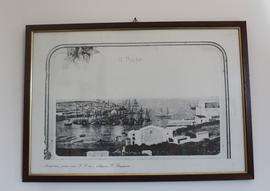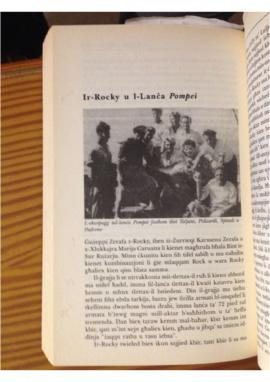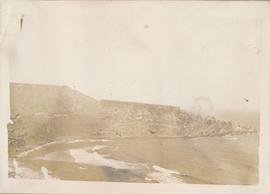Showing 381 results
Archival descriptionPostcard showing Maria Therese Frendo Randon
- MT NAM MEM-0007HLG-03-05
- Item
- 20/02/1939
Part of Memorja
Maria Therese Frendo Randon was the wife of Henry Louis Gatt
Postcard showing Maria Therese Frendo Randon
- MT NAM MEM-0007HLG-03-04
- Item
- 23/05/1932
Part of Memorja
Maria Therese Frendo Randon was the wife of Henry Louis Gatt
Postcard showing Maria Therese Frendo Randon
- MT NAM MEM-0007HLG-03-03
- Item
- 03/03/1930
Part of Memorja
Maria Therese Frendo Randon was the wife of Henry Louis Gatt
Postcard showing Maria Cassar Torreggiani
- MT NAM MEM-0007HLG-03-02
- Item
- 02/04/1920
Part of Memorja
Maria Cassar Torreggiani was the mother of Maria Therese Frendo Randon, wife of Henry Louis Gatt.
Postcard showing Alfred Joseph Gatt
- MT NAM MEM-0007HLG-03-01
- Item
- 1916-1919
Part of Memorja
- MT NAM MEM-0007HLG-03-06
- Item
- n/a
Part of Memorja
William Gatt was the brother of Brigadier Alfred J. Gatt and the uncle of Henry Louis Gatt. According to Henry, William had died after he had been thrown from a horse during a military parade in Valletta.
Portrait of Giovanni Fragapane's mother
- MT NAM MEM-0002GF-03-01
- Item
- 05/06/1962
Part of Memorja
Our Lady of Trapani and Our Lady of Lampedusa
- MT NAM MEM-0002GF-03-03
- Item
- n/a
Part of Memorja
These postcards represent Our Lady of Trapani and Our Lady of Lampedusa. This image is related to the interview from 01:39:00 until 01:40:00 wherein Giovanni Fragapane speaks about the relationship between Our Lady of Trapani and Our Lady of Lampedusa.
Official documents with Ettore Raffi's navigations' list
- MT NAM MEM-0001ER-03-01
- Item
- 1955-1977
Part of Memorja
This document shows a list of the navigation trips that Ettore Raffi did between 1955 and 1977.
Obverse of Victory Medal with Mention in Despatches emblem awarded to Anthony Joseph Gatt
- MT NAM MEM-0007HLG-03-15
- Item
- 1919
Part of Memorja
Obverse of Service Medal of the Order of St John, awarded to Anthony Joseph Gatt
- MT NAM MEM-0007HLG-03-18
- Item
- n/a
Part of Memorja
- MT NAM MEM-0007HLG-03-17
- Item
- n/a
Part of Memorja
Obverse of Military Cross awarded to Anthony Joseph Gatt
- MT NAM MEM-0007HLG-03-16
- Item
- 20/02/2019
Part of Memorja
Lieutenant (temporary Captain) Alfred Joseph Gatt was awarded the Military Cross on 3rd June, 1916, during the First World War while serving at Gallipoli
Obverse of King George VI Coronation Medal awarded to Anthony Joseph Gatt
- MT NAM MEM-0007HLG-03-20
- Item
- 1937
Part of Memorja
Obverse of King George V Silver Jubilee Medal awarded to Anthony Joseph Gatt
- MT NAM MEM-0007HLG-03-19
- Item
- 1935
Part of Memorja
Obverse of British War Medal awarded to Anthony Joseph Gatt
- MT NAM MEM-0007HLG-03-14
- Item
- 1919
Part of Memorja
Obverse of 1914-15 Star awarded to Anthony Joseph Gatt
- MT NAM MEM-0007HLG-03-13
- Item
- 1918
Part of Memorja
Part of Memorja
Part of Memorja
Part of Memorja
Part of Memorja
Part of Memorja
Part of Memorja
Part of Memorja
Part of Memorja
Part of Memorja
Part of Memorja
Part of Memorja
Part of Memorja
Part of Memorja
Part of Memorja
Part of Memorja
Part of Memorja
Part of Memorja
Part of Memorja
Part of Memorja
Part of Memorja
Part of Memorja
Part of Memorja
Part of Memorja
- MT NAM MEM-0001ER-03-02
- Item
- 2/04/1976
Part of Memorja
The logbook was granted on the 2nd of April 1976. It contains all of Ettore Raffi's professional titles and qualifications, visas granted by different border police offices and foreign consulates, and all the embarkation and disembarkation movements.
Mikelina Vella_part03_27.06.2017
- MT NAM MEM-0012MV-01-01-03
- Item
- 2017-06-27
Part of Memorja
In the third part of the interview, Mikelina Vella remembered the British servicemen that used to frequent Mosta from the nearby aerodrome at Ta' Qali and she later spoke about the award of the George Cross and its presentation to the people of Mosta. She then finished her interview with a wartime song.
Mikelina Vella_part02_27.06.2017
- MT NAM MEM-0012MV-01-01-02
- Item
- 27/06/2017
Part of Memorja
In the second part of the interview, Mikelina Vella explained the Victory Kitchens and the food (or lack thereof) that used to be available. She decried the lack of medical care - her family had not been visited by a doctor during the war - and the lack of sanitation. She recalled the (Air Raid Precautions) A.R.P., unexploded bombs and the bombs which had penetrated the Mosta Rotunda.
Mikelina Vella_part01_27.06.2017
- MT NAM MEM-0012MV-01-01-01
- Item
- 27/06/2017
Part of Memorja
In the first part of the interview, Mikelina Vella started by talking about her childhood. She recalled the declaration of war, life in the shelters, the air raids and the refugees which had sought shelter in Mosta.
- MT NAM MEM-0012MV-01-01
- File
- 27/06/2017
Part of Memorja
Dates covered: 1927-2017. In her interview, Mikelina Vella described her wartime experiences in Mosta. She talked about the air raids, the Air Raid Precautions (A.R.P.), the scarcity of food, the black market and the Operation Pedestal convoy. She finished off by singing a wartime song from her childhood.
- MT NAM MEM-0012MV-02-01
- Item
- 27/06/2017
Part of Memorja
Medals awarded to Henry Louis Gatt
- MT NAM MEM-0007HLG-03-12
- Item
- c. 1943-1992
Part of Memorja
Medals awarded to Alfred Joseph Gatt and Henry Louis Gatt
- MT NAM MEM-0007HLG-03-11
- Item
- 1914-1992
Part of Memorja
Alfred Joseph Gatt's medals are in the top row and Henry Louis Gatt's medals are between the two photographs
Maria Therese and Henry Louis Gatt wedding reception
- MT NAM MEM-0007HLG-02-07
- Item
- 26-06-1947
Part of Memorja
Brigadier Alfred Joseph Gatt (Henry's father, at back), Antoine Pace Bonello (the best man at Henry's wedding), Maria Therese Gatt, née Frendo Randon and Henry Louis Gatt at the wedding reception.
Maria Therese and Henry Louis Gatt wedding ceremony
- MT NAM MEM-0007HLG-02-05
- Item
- 26-06-1947
Part of Memorja
Maria Therese Gatt, née Frendo Randon and Henry Louis Gatt leaving church after their wedding ceremony. Major Maurice G. Agius (retd., first from right) was interviewed for the theme Experiencing War: Survival, shelter and food.
Maria Therese and Henry Louis Gatt wedding ceremony
- MT NAM MEM-0007HLG-02-06
- Item
- 26-06-1947
Part of Memorja
Maria Therese Gatt, née Frendo Randon (centre, front row) and Henry Louis Gatt (second from right, front row) leaving church after their wedding ceremony.
Maria Therese and Henry Louis Gatt during their honeymoon
- MT NAM MEM-0007HLG-02-12
- Item
- June 1947
Part of Memorja
Maria Therese Gatt née Frendo Randon and Henry Louis Gatt while on their honeymoon. The promontory in the background is 'Ras Il-Qarraba.'
Maria Therese and Henry Louis Gatt during their honeymoon
- MT NAM MEM-0007HLG-02-10
- Item
- June 1947
Part of Memorja
Maria Therese Gatt née Frendo Randon and Henry Louis Gatt in front of the living quarters at Ghajn Tuffieha camp on their honeymoon.
Maria Therese and Henry Louis Gatt during their honeymoon
- MT NAM MEM-0007HLG-02-11
- Item
- June 1947
Part of Memorja
Maria Therese Gatt née Frendo Randon and Henry Louis Gatt on their honeymoon.
Maria Therese Gatt in carnival costume
- MT NAM MEM-0007HLG-02-20
- Item
- 1947
Part of Memorja
Maria Therese Gatt, née Frendo Randon in carnival costume
Maria Therese Gatt at the living quarters at Għajn Tuffieħa camp
- MT NAM MEM-0007HLG-02-18
- Item
- June 1947
Part of Memorja
Maria Therese Gatt, née Frendo Randon standing in the doorway of a billet at Ghajn Tuffieha camp during her honeymoon.
Maria Therese Gatt at the living quarters at Għajn Tuffieħa camp
- MT NAM MEM-0007HLG-02-19
- Item
- June 1947
Part of Memorja
Maria Therese Gatt, née Frendo Randon standing by billets at Ghajn Tuffieha camp during her honeymoon.
Maria Therese Gatt at Għajn Tuffieħa bay
- MT NAM MEM-0007HLG-02-16
- Item
- June 1947
Part of Memorja
Maria Therese Gatt née Frendo Randon at Ghajn Tuffieha bay during her honeymoon. The sign on the restaurant reads: 'FIRST AND LAST RESTAURANT. JOHN FENECH'
The proprietor could have been known by the nickname "Kukkuru."
Maria Therese Gatt at Għajn Tuffieħa bay
- MT NAM MEM-0007HLG-02-17
- Item
- June 1947
Part of Memorja
Maria Therese Gatt, née Frendo Randon at Ghajn Tuffieha bay during her honeymoon. Ghajn Tuffieha Tower and a Second World War-era beach post are visible at the edge of the cliff.
Maria Therese Gatt at Għajn Tuffieħa bay
- MT NAM MEM-0007HLG-02-13
- Item
- June 1947
Part of Memorja
Maria Therese Gatt née Frendo Randon at Ghajn Tuffieha bay during her honeymoon. The promontory in the background is 'Ras Il-Qarraba.'
Maltese contributions to Allied war efforts
- MT NAM MEM-0007HLG-03-25
- Item
- 10-01-2016
Part of Memorja
The Sunday Times of Malta.
Author: Michael Galea
https://timesofmalta.com/articles/view/Maltese-contributions-to-Allied-war-efforts-in-1916.598304
Major Henry Louis Gatt_part03_08.02.2018
- MT NAM MEM-0007HLG-01-01-03
- Item
- 08/02/2018
Part of Memorja
In the third part of the interview, Henry Louis Gatt talked about his post-War military career. He had listed his overseas postings and explained in detail the operations he had to go on when he was stationed in Palestine. He mentioned the Jewish terrorist groups, the King David Hotel bombing, the rundown of the British services in Malta and the final British withdrawal in 1979.
Major Henry Louis Gatt_part02_08.02.2018
- MT NAM MEM-0007HLG-01-01-02
- Item
- 08/02/2018
Part of Memorja
In the second part of the interview, Henry Louis Gatt continued to talk about conscription before mentioning a chemical warfare which he had to attend in Monte Cassino, Italy. He described the Victory Kitchens, the ever-decreasing rations of both food and munitions and the lack of sanitation.
Major Henry Louis Gatt_part01_08.02.2018
- MT NAM MEM-0007HLG-01-01-01
- Item
- 08/02/2018
Part of Memorja
In the first part of the interview, Henry Louis Gatt spoke about conscription into the Royal Malta Artillery (R.M.A.), his family's evacuation to Rabat, air raids, shelters and his father, Brigadier Alfred J. Gatt.
Major Henry Louis Gatt_2_15.03.2019
- MT NAM MEM-0007HLG-01-03
- File
- 15/03/2019
Part of Memorja
Dates covered: 1882-1950. Major Henry Gatt's (retd.) father was the late Brigadier Alfred Joseph Gatt and during the interview Henry talked about his father's military service in Gallipoli during the First World War.
Major Henry Louis Gatt_1_15.03.2018
- MT NAM MEM-0007HLG-01-03-01
- Item
- 15/03/2019
Part of Memorja
Major Henry Gatt's (retd.) father was the late Brigadier Alfred Joseph Gatt and during the interview Henry talked about his father's military service in Gallipoli during the First World War.
Major Henry Louis Gatt_1_08.02.2018
- MT NAM MEM-0007HLG-01-01
- File
- 08/02/2018
Part of Memorja
Dates covered: 1882-1979. Major Henry Gatt (retd.) talked about his wartime experiences: his family's relocation to Rabat from Valletta, the shelters, the arrival of Spitfire aircraft and his military service. The second part of the interview consisted of his post-War service, especially his posting in the final months of the British Mandate of Palestine. He remembered the King David Hotel bombing, the terrorist groups, the so-called 'Sergeants Affair' and he finished off by recalling the rundown and the final withdrawal of British forces from Malta.
List of Maltese officers who served overseas during the First World War
- MT NAM MEM-0007HLG-03-23
- Item
- n/a
Part of Memorja
- MT NAM MEM-0001ER-02-06
- Item
- 25/09/2017
Part of Memorja
This brand of soap generated many memories for the fishermen and the women of Lampedusa. This used to be bought in Malta during their travels and taken back home to their families.
Laurence Mizzi_part03_16.07.2017
- MT NAM MEM-0008LM-01-01-03
- Item
- 16/10/2017
Part of Memorja
In the third part of the interview, Laurence Mizzi had started by reciting some verses about the Victory Kitchens. He spoke about the Black Market and the effects this racketeering had on the Maltese population, the arrival of the convoys, his opinion on the Malta-born Italy-serving spy Carmelo Borg Pisani and he mentions a particular accident involving himself and one of his brothers during the war.
Laurence Mizzi_part02_16.07.2017
- MT NAM MEM-0008LM-01-01-02
- Item
- 16/10/2017
Part of Memorja
In the second part of the interview, Laurence Mizzi further explained the living conditions in Gudja and the cultural gulf between the Cottonera residents and the rural dwellers. He went on to recount the arrival of the German Air Force, the H.M.S. Illustrious air raid, contact with British servicemen, the underground shelters and the Victory Kitchens.
Laurence Mizzi_part01_16.07.2017
- MT NAM MEM-0008LM-01-01-01
- Item
- 16/10/2017
Part of Memorja
In the first part of the interview, Laurence had spoken about the Italian declaration of war and his family's immediate relocation to Gudja. He remembered the refugees trickling out of the inner harbour area with the hope of being given shelter in the villages. He then spoke about how these refugees had to adapt to new living conditions in the rural areas and the cultural differences these people had experienced as opposed to city life.
- MT NAM MEM-0008LM-01-01
- File
- 16/10/2017
Part of Memorja
Dates covered: 1931-1945. Laurence Mizzi spoke about the Italian declaration of war and the subsequent bombardments which had forced his family's relocation to Gudja as refugees. Laurence remembered the way of life in the rural areas, the disparity between the city dwellers and the villagers, the new living conditions which the former had to get accustomed to, the air raids, the black market, Victory Kitchen songs, the convoys and his take on the Maltese-born Italy-serving spy Carmelo Borg Pisani.
Laurence Mizzi with two of his brothers at St. Paul's Bay
- MT NAM MEM-0008LM-02-02
- Item
- 1944
Part of Memorja
- MT NAM MEM-0008LM-02-01
- Item
- 10/10/2017
Part of Memorja
- MT NAM MEM-0002GF-02-01
- Item
- 1900
Part of Memorja
Part of Memorja
Part of Memorja
Part of Memorja
Part of Memorja
Part of Memorja
Part of Memorja
Part of Memorja
Part of Memorja
Part of Memorja
- MT NAM MEM-0049GM-03-02
- Item
- n/a
Part of Memorja
This short story is about an ordeal which the crew of the trawler Pompei experienced during a storm. The trawler together with a crew of thirteen men were on its way to the port of Lampedusa. The lighthouse of the port of Lampedusa was in sight, when a storm brew-up from the north west. The storm was so strong that the large trawler was almost going to capsize. The trawler’s captain Girlando Policardi who was an experienced sea captain from Lampedusa, was terrified and handed the helm to the trawler’s owner Giuseppi Zerafa, known as Ir-Rocky. The youngest member of the crew Giuseppe Mattina, who was 13 years old, was very seasick. After a twenty-four-hour ordeal they managed to arrive safely at the port of Lampedusa.
- MT NAM MEM-0007HLG-02-67
- Item
- n/a
Part of Memorja
- « Previous
- 1
- 2
- 3
- 4
- Next »
